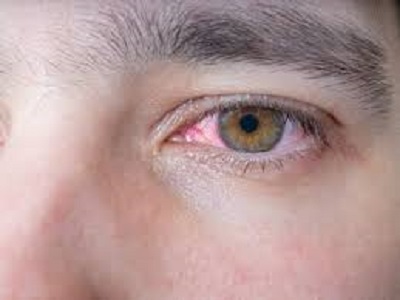
Blurry Vision- Why could your vision be blurry? We at On Call Medical Clinic would like to provide you some information that may be helpful when this occurs.
- You may need glasses. When your eyeball is shaped more like an egg than round, or your cornea or your lens isn’t curved just so, light can’t focus in the right spot. That can lead to seeing clearly only at certain distances (nearsighted and farsighted) and distorted vision (astigmatism). You can often correct these “refractive errors” with eyeglasses, contact lenses, or minor surgery.
- Your Eyes may be tired. Have you been staring at a screen or page or focusing on a task for a long time? People tend to blink less often when they’re concentrating like that. And each time you blink, you’re spreading tears across the surface of your eye to keep it lubricated, clean, and refreshed. You may need to remind yourself to blink more often, take breaks, and look around to prevent vision fatigue.
- Eye Inflammation. Eye tissue may swell because it’s been bruised or something bad was splashed in it. The herpes virus from a cold sore could move to your eye. Sleeping in your contacts, not cleaning them correctly, or not throwing them away when you should can also lead to infections. Immune system diseases that affect other parts of your body, like psoriasis, IBS, and rheumatoid arthritis, can also cause inflammation in your eye.
- Low Blood Pressure. Feeling weak and dizzy, too? Your blood pressure might be too low because you’re dehydrated — maybe from too much activity in the hot sun. Things like some medications, heart problems, poor nutrition, and hormone imbalances could also cause low blood pressure and related blurry vision.
- Fluid build-up around your eyes. That can put pressure on the optic nerve and damage it. If you’re also seeing halos around lights, your eyes are very red and hurt a lot, and you feel queasy, you may have acute angle glaucoma. It develops very quickly, and you could lose your vision within a day if it’s not treated. Open-angle glaucoma is more common, but it doesn’t usually affect your vision at first.
- Migrate Headaches. About 1/4 of people who have migraines get visual auras, usually before the pain and for less than an hour. These range from shimmering zig-zag lines, sparkles, and flashes to blind spots and tunnel vision. It may seem like you’re looking through water or cracked glass. (You could also have vision symptoms without or after the headache.) If it happens only in one eye, see your doctor in case it’s a serious problem.
- You may have Cataracts. That’s a cloudy area in the normally clear lens of the eye. They grow slowly, usually in both eyes, after age 55. But younger people, even kids, can get them, too. Colors may seem faded, it may be harder to see at night, and you may be more sensitive to glare. Special glasses and lens coatings can help you see. Surgery can replace the cloudy lens with a man-made one.
- Or maybe it’s getting Older. Starting around 40, you’ll notice it’s harder to focus on up-close tasks like reading. The clear lens inside your eye isn’t as flexible as younger people’s. It’s a normal part of aging. Your eye doctor can help you with reading glasses, contacts, or surgery.
These are some of the causes of blurred vision that you may be witnessing. This information was obtained from the WebMD website. We at On Call Medical Clinic hope this information is helpful. We are here 7 days a week to help when minor illnesses or accidents occur. Please call us at 228 818-5155 if we can help. Please visit our website at www.oncallclinic.com to learn more about us and all the services we offer.



